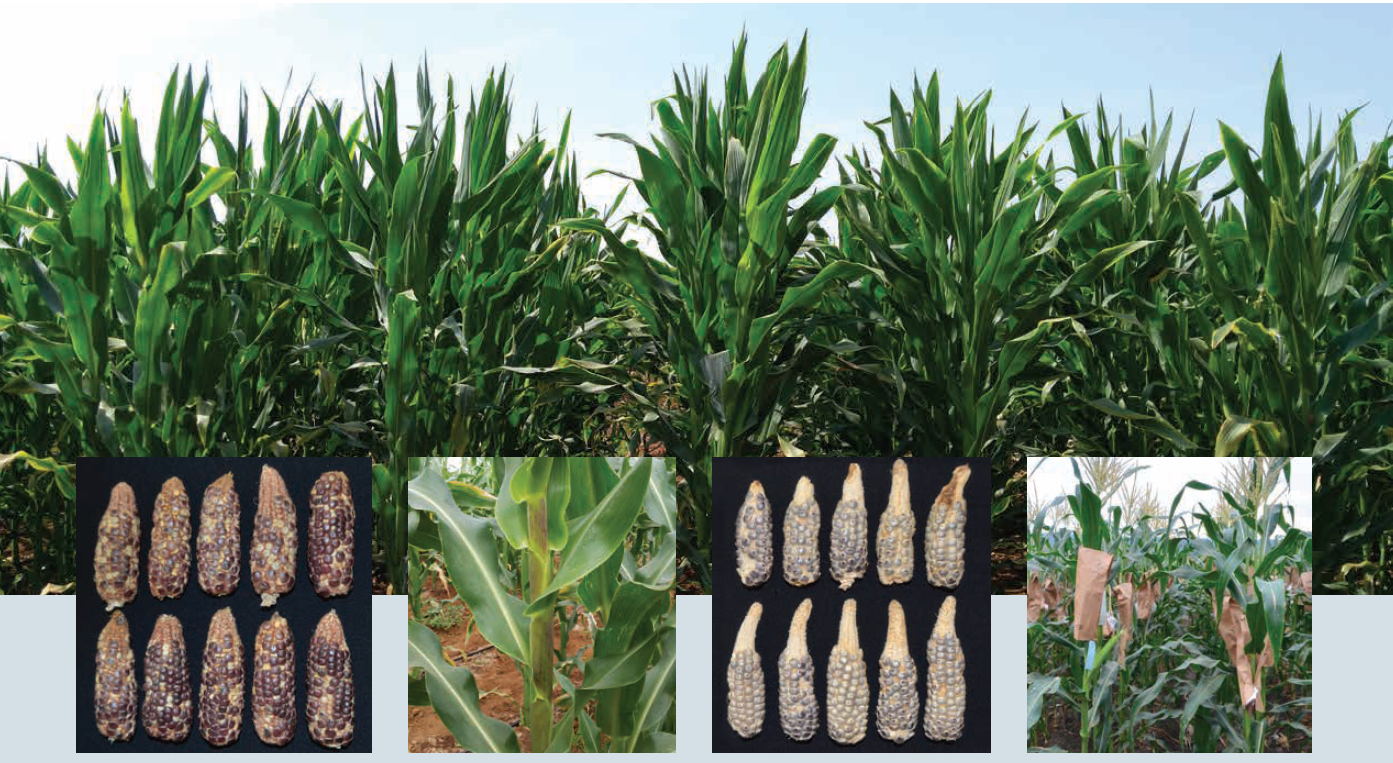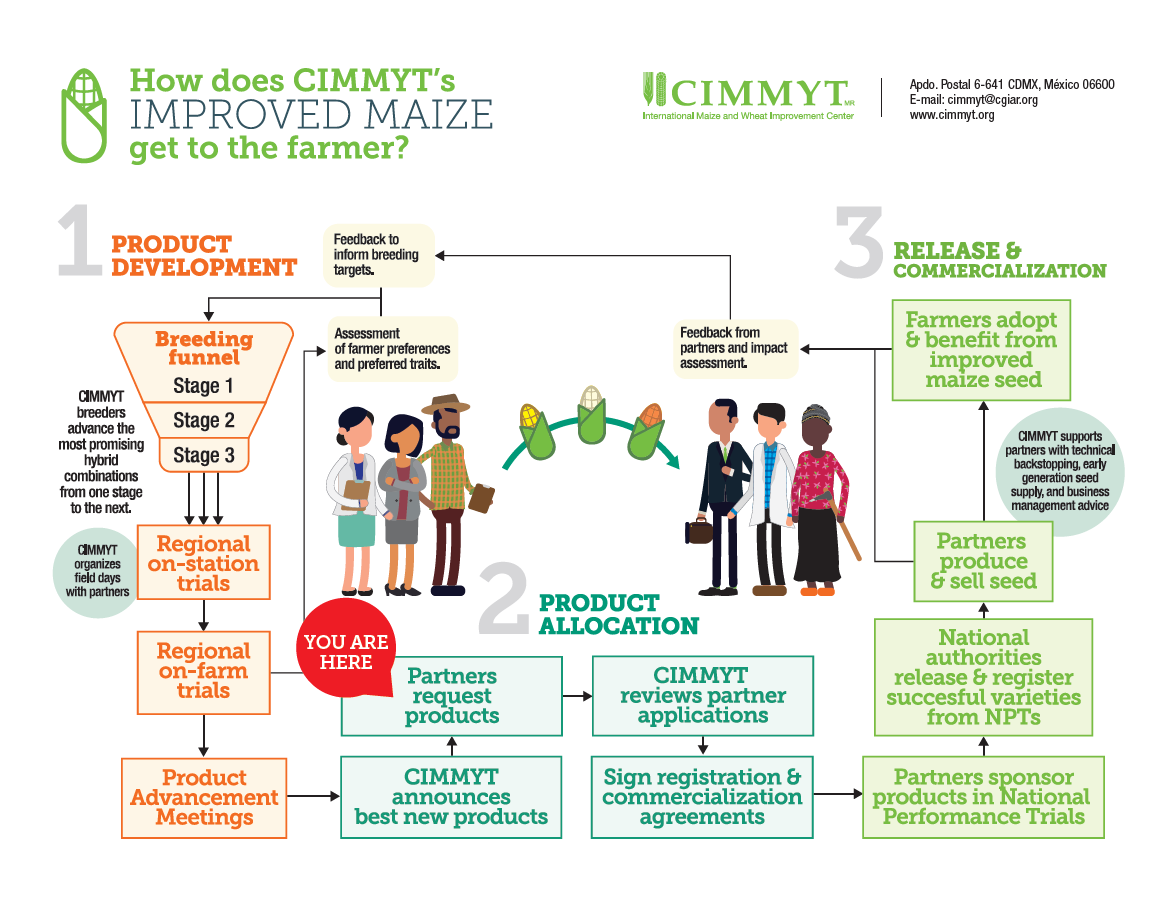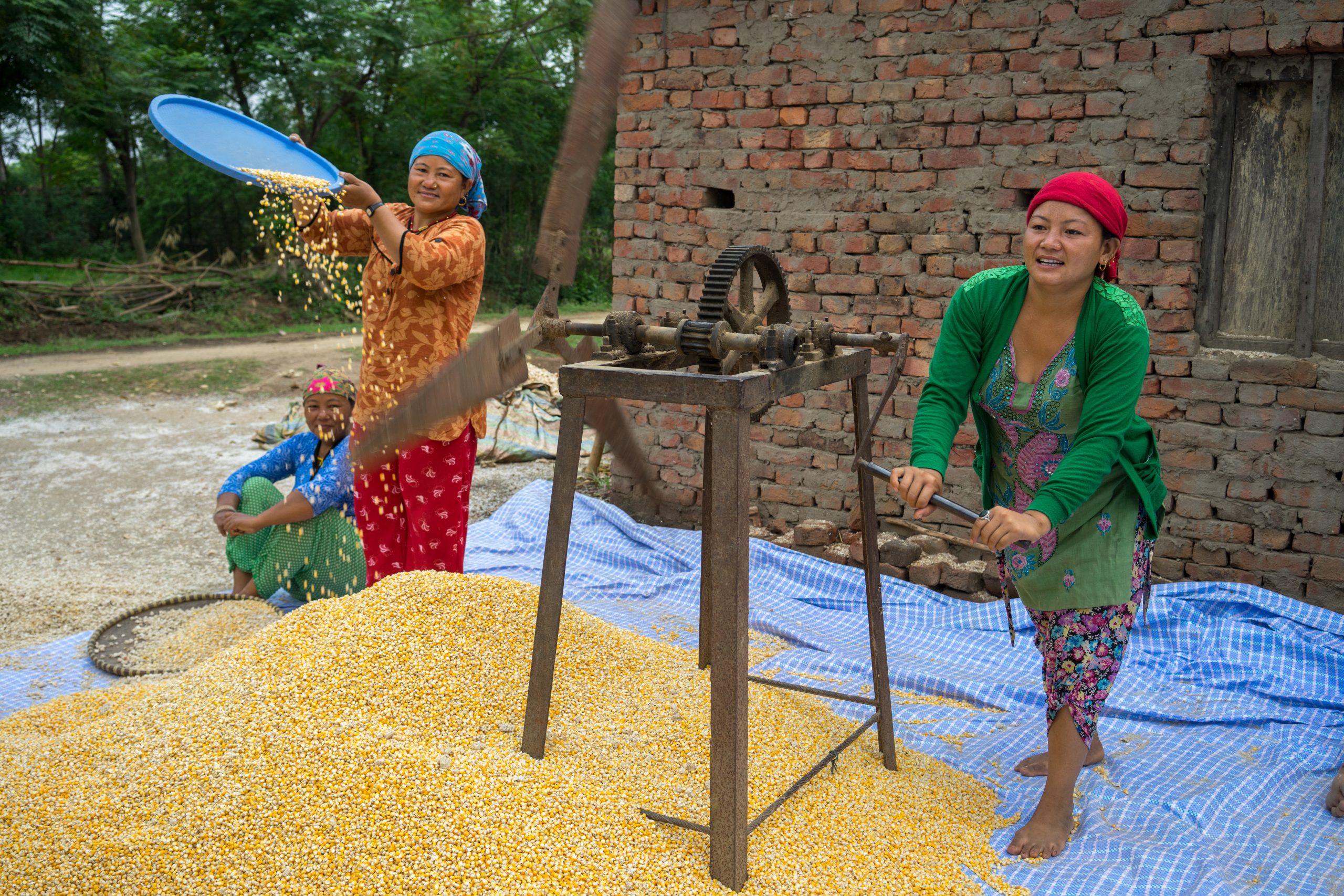
tropically adapted haploid inducers
Developing elite inbred lines is a cornerstone of hybrid maize breeding—but traditionally, it’s a slow and resource-intensive process. Conventional methods require 6 to 8 crop cycles (30–40 months), delaying the delivery of improved varieties to farmers.
Doubled Haploid (DH) technology has transformed this process by slashing the timeline to just two crop cycles—around 10 to 12 months. In addition to saving time, DH lines streamline breeding operations and are ideally suited for advanced approaches like genomic selection.
At the heart of DH technology lies the generation of haploids: plants with only a single set of chromosomes. This is made possible by haploid inducers—special genotypes that trigger haploid formation. However, until 2012, no haploid inducers adapted to tropical environments were publicly available.
To fill this gap, CIMMYT, in partnership with the University of Hohenheim, released the first generation of tropicalized haploid inducers in 2012. These were quickly adopted by public and private breeding programs across the globe.
Building on that success, CIMMYT launched a second generation of tropical haploid inducers in 2017. These improved lines offer higher haploid induction rates and stronger agronomic performance. Since their release, they’ve been accessed by 50 organizations—28 public and 22 private—across 18 countries, significantly boosting DH adoption in tropical regions and strengthening global maize breeding.
Today, CIMMYT’s 2nd-generation inducers remain the top performing tropical maize haploid inducers available to the public. They are accessible to any interested organization by signing a specific material transfer agreement (MTA).
🔗 For more information or to request access to these lines, please contact:
Second-generation haploid inducers
CIMMYT’s Second-Generation Tropicalized Haploid Inducers
For specific inquiries, please contact:
Dr. Vijay Chaikam: V.Chaikam@cgiar.org

 Innovations
Innovations 